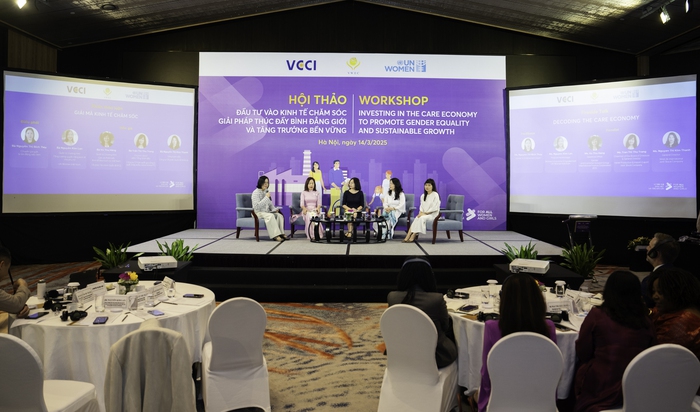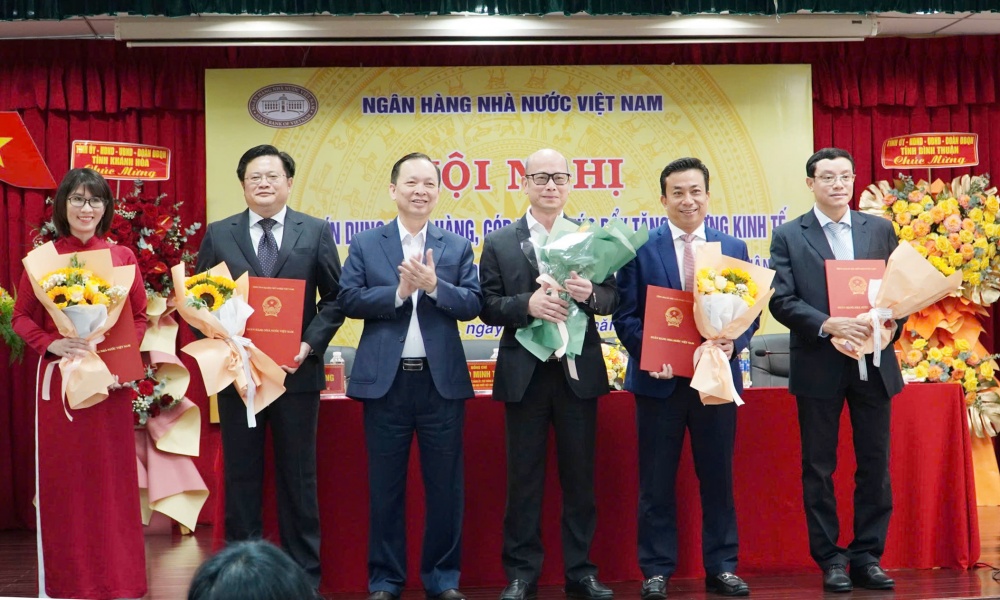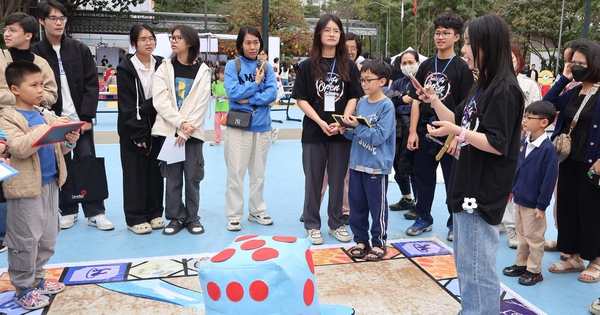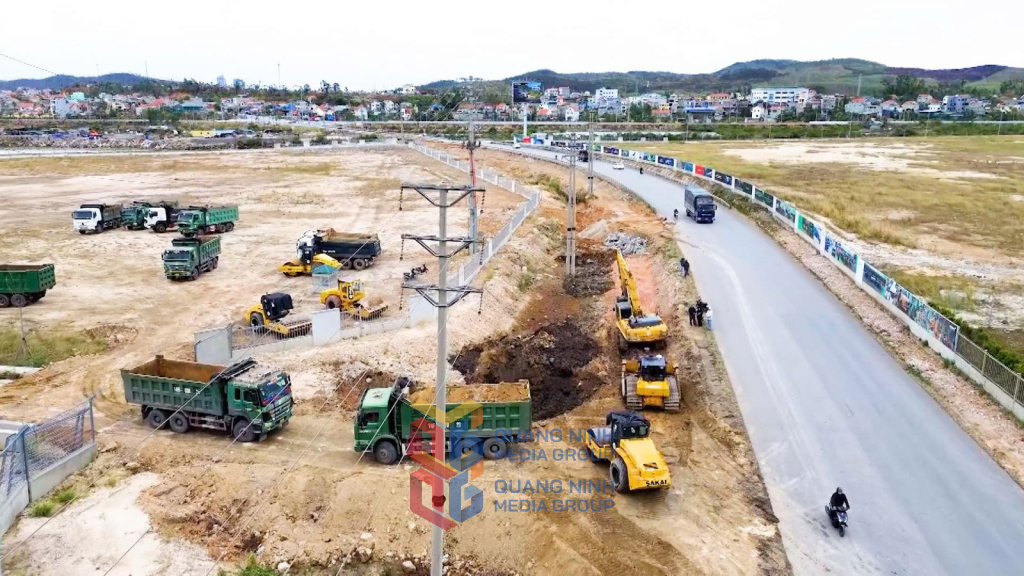On March 14, the Vietnam Women Entrepreneurs Council under the Vietnam Confederation of Commerce and Industry (VCCI) and the United Nations Entity for Gender Equality and the Empowerment of Women (UN Women) organized the workshop "Investing in the Care Economy: Solutions to promote gender equality and sustainable growth". The event was attended by Ms. Pauline Tamesis - Resident Coordinator of the United Nations in Vietnam - and nearly 130 delegates.
Care economics refers to the economic sector related to the provision of care services for people including children, women, the elderly, the sick, the disabled... Care economics plays an important role in maintaining the functioning of society.

Workshop "Investing in the Care Economy: Solutions to promote gender equality and sustainable growth" took place on March 14
The Burden of Unpaid Caregiving
At the workshop, experts said that around the world, women shoulder a greater burden of unpaid care work than men. In the Asia-Pacific region, women do on average 2.5 times more unpaid care work than men. Vietnamese women spend nearly twice as much time on housework as men.
In particular, family care responsibilities are one of the main reasons why women limit their participation in the labor market, have to take on precarious, unstable jobs or even become unemployed.
Meanwhile, paid care work such as childcare, care for the elderly, and care for the sick is often done by women, most of whom are migrants, with poor working conditions, low wages, and limited social and labor protection. If women’s contribution to all forms of care is considered, they contribute US$11 trillion to the global economy. Yet women and girls continue to suffer because of the undervaluation of care work and underinvestment in care services, setting us back in our progress towards achieving gender equality.

The event was attended by Ms. Pauline Tamesis - United Nations Resident Coordinator in Vietnam - along with nearly 130 delegates.
The Limits of the Care Economy in Vietnam
Experts recognize the importance of the care economy and the direction towards building a gender-responsive care economy in Vietnam. Ms. Mai Thi Dieu Huyen, Vice President in charge of the Vietnam Women Entrepreneurs Council, VCCI, emphasized: "Promoting gender equality in the world of work is about unleashing women's economic potential and promoting their contributions to the comprehensive growth of the economy. Through close cooperation between stakeholders, we can build a comprehensive care ecosystem that benefits women, businesses and the community."
Ms. Caroline T. Nyamayemombe, UN Women Representative in Viet Nam, shared: "Investing in the care system is not only necessary but also transformative. Such investment will benefit women, men, care recipients, communities and the country. The State, social organizations, businesses and communities must work together to build a gender-responsive care economy that benefits everyone."
Ms. Nguyen Thi Kim Thanh, General Director of Nhan Ai International Joint Stock Company, has many years of experience in the nursing home system in Vietnam when applying advanced models abroad to the field of elderly care. She affirmed that women with their strengths of meticulous observation and carefulness are very suitable for the field of elderly care. Therefore, when participating in this service, women, especially in the golden age of 35 - 45, can promote their strengths and at the same time contribute to gender equality.
The care economy, viewed from the perspective of an economic sector, although it has potential, according to Ms. Thanh, there are many limits to its development. For example, the human resources participating in the care economy have not been trained from a formal industry code, mainly from the nursing industry and because businesses themselves open short-term training courses for employees.
"As the country develops, the demand for elderly care services will increase. We hope to receive more support through policies to be able to replicate this economic model," Ms. Thanh proposed.
Source: https://phunuvietnam.vn/phat-trien-kinh-te-cham-soc-de-thuc-day-binh-dang-gioi-tai-viet-nam-20250314200905335.htm





























Comment (0)